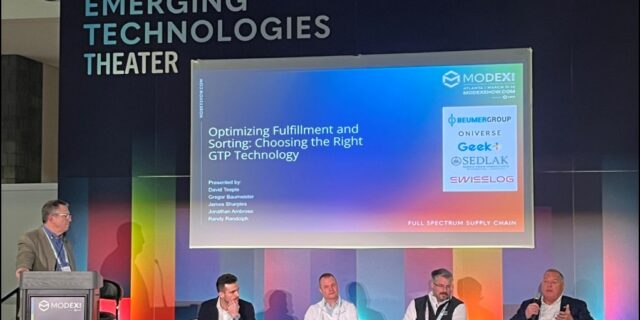Streamline Your WMS Start-Up (Pt. 4)
April 14, 2014 By: Senior Management | Topics: Change Management, IT SolutionsPart 4: Implementation Insurance
A tough WMS start-up does not just happen in the two weeks prior to go-live. These scenarios are caused by inadequate pre-planning from the very beginning, and poor project management. Following are several critical requirements for a successful WMS installation:
- Detailed Definition of WMS Operations – A clear identification of the needs and wants from a WMS as determined from senior-level logistics executives in the company. This encompasses MHE selection and integration, ERP suitability, business projections, inventory allocation and flow strategies, system design criteria, and labor management and transportation management systems. A complete ROI analysis is prepared, comparing current operating procedure to the new, proposed WMS operating structure.
- Detailed Understanding of Best Processes – Too many supply chain executives are approaching warehouse management systems the wrong way. They are making the fundamental mistake of selecting a WMS, and expecting to change their processes to fit into it. Identifying a company’s best processes, then finding a WMS that will support these processes, with minimal modifications, should be the initial central approach of any WMS solution. Approaching WMS design from a process perspective does not necessitate the implementation of any specific IT solution, but leaves the door open to any options to achieve the objectives of the distribution center’s supply chain executives.
- Coordinated WMS Installation Plan – Typically, the WMS is being built while the MHE systems are being installed, and potentially when a new ERP is going in. The precise date coordination of equipment testing, system conversion and equipment start-up with the WMS build is critical to ensure the interlinked material handling systems in the new warehouse, and ERP, come up without interruptions. Any plan must allow for potential MHE and ERP delays, as well as potential time delays for unforeseen WMS modifications.
- WMS Change Management – Inadequate WMS change management can be isolated as a key reason why warehouses with newly implemented WMS are not operating at full capacity. Despite its importance, successful WMS change management strategy is seldom fully embraced by those responsible for the WMS installations. Before the WMS goes live, the coordination of equipment testing, system conversion and equipment start-up is critical to ensure the interlinked material handling systems come up without interruptions. Well before the go-live or switchover takes place, it is vitally important for the DC’s staff to be fully trained in the operation of the WMS and the dozens of functions involved with the operation of the facility. This requires considerable coordination between equipment manufacturers and installers, the warehouse executives and operational personnel, and the company’s executive management to ensure targeted actions are completed as specified in the WMS installation plan.
Implementing successful WMS strategies can be challenging, even for the most seasoned supply chain executives under the best of conditions. Working with system installers, IT technicians, equipment manufacturers, company executives and an experienced independent project consultant like Sedlak opens up a broad range of perspectives on every aspect of WMS installation. Our depth of experience can make the difference in selecting and managing a WMS that will meet your requirements for throughput and efficiency, minimize capital outlay and deliver the expected return on investment.
Sedlak is an industry leader in distribution and fulfillment solutions, including warehouse management system selection and implementation. Our joint installation methodology with alliance systems providers ensures successful projects.
We hope that you will find the insights contained in this series helpful to your business. If there is any way we can be of assistance with your WMS or information systems needs, please feel free to contact us by filling out the form below.





